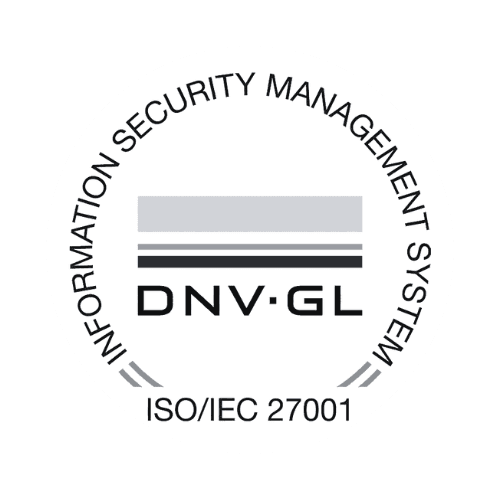Bądź pierwszy, który się dowie
Written by AI
How SaaS is Revolutionizing Education: Opportunities and Challenges of Digital Transformation
The digital transformation has significantly changed the educational landscape in recent years. One of the outstanding technologies that has unleashed this revolutionary potential is Software as a Service (SaaS). In this article, we will take a closer look at the role of SaaS in education and consider the opportunities and challenges that come with it.
Understanding SaaS and Its Role in Education
SaaS, or Software as a Service, refers to a cloud-based delivery of software applications. In the field of education, SaaS enables access to various digital tools and resources over the Internet. Through this provision of software as a service, SaaS has the potential to revolutionize education and create new opportunities.
SaaS has developed into an important tool in the educational landscape over the past few years. The flexibility and scalability of this technology allow educational institutions to implement customized solutions for their specific needs. This helps make the learning process more efficient and effective by enabling educators and learners to access innovative tools and resources.
Definition and Function of SaaS
SaaS is a software solution where applications are hosted by an external provider and made accessible over the Internet. Users can access the software through a web browser and access their data and functions from anywhere. This allows for high flexibility and mobility in education.
The implementation of SaaS in educational institutions not only offers technological advantages but can also lead to cost savings. By outsourcing software applications to external providers, schools and universities can often avoid high costs in infrastructure and maintenance. Instead, they can rely on a subscription model that allows for flexible and needs-based usage.
Application of SaaS in Education
SaaS can be used in various areas of education. From digital learning and online collaboration to the management of teaching materials and data analysis, SaaS offers numerous opportunities to improve the educational process.
Through the integration of SaaS solutions, educational institutions can also benefit from regular updates and advancements without having to allocate additional resources for software updates. This ensures that educators and learners always have access to the latest features and improvements to continuously optimize their learning experiences.
The Benefits of Implementing SaaS in Education
Improvement of Accessibility and Flexibility
One of the greatest advantages of SaaS in education is the improved accessibility and flexibility. Students and educators can access the software from anywhere and seamlessly continue their work processes. This allows for easier and more efficient working, regardless of time and location.
The flexibility of SaaS in education also extends to the possibility of personalized learning paths. Through the adaptability of the software, educators can create individualized learning paths for students tailored to their needs and learning pace. This promotes a customized learning experience that addresses the strengths and weaknesses of each individual.
Cost Efficiency and Scalability
By utilizing SaaS software solutions, educational institutions can save costs. Instead of purchasing expensive software licenses, schools and universities can switch to the cost-effective monthly use of SaaS platforms. Furthermore, SaaS provides the ability to scale the software usage according to needs, allowing educational institutions to avoid using oversized software solutions.
The scalability of SaaS in education enables institutions to adapt to changing requirements. With the ability to flexibly adjust software usage, educational institutions can quickly respond to changes in student numbers or curricula without needing to invest heavily in new software.
Challenges in Integrating SaaS into the Education System
Security Concerns and Data Privacy
A key aspect of integrating SaaS into the education system is security concerns and data privacy. As data is stored and processed in the cloud, there is a risk of data breaches and unauthorized access to sensitive information. Educational institutions must ensure that appropriate security measures are taken to protect their students' data.
Technical Challenges and Requirements
The implementation of SaaS also requires technical resources and infrastructure. Not all educational institutions have the necessary bandwidth and network infrastructure to ensure smooth use of SaaS platforms. Therefore, it is important for educational institutions to properly assess the technical challenges and requirements of integrating SaaS and take appropriate measures.
Another important aspect that must be considered in the integration of SaaS into the education system is the training of educators and staff. The use of SaaS tools often requires a certain amount of onboarding and training to fully leverage the potential of the platforms. It is therefore crucial that educational institutions offer training programs to ensure that their staff can effectively utilize SaaS technologies.
Future Perspectives for SaaS in Education
Potential Developments and Innovations
The addition of SaaS to the educational landscape also opens up space for potential developments and innovations. New solutions and tools can emerge to further improve the educational process. For example, AI-driven learning platforms could be developed that better recognize individual learning needs and provide personalized learning content.
The integration of SaaS in educational institutions enables teachers, students, and administrative staff to access a variety of applications and resources that make teaching and administrative tasks more efficient. Due to the cloud-based nature of SaaS, updates and improvements can be seamlessly implemented without users needing to manually update software.
Conclusions and Outlook
SaaS undoubtedly has the potential to revolutionize education and improve the teaching and learning process. It offers many benefits, such as improved accessibility, flexibility, and cost efficiency. Of course, there are also challenges, particularly regarding security and data privacy. Nevertheless, the future perspectives for SaaS in education are promising. With further developments and innovations, SaaS can help make education more accessible and effective for all.
The continuous development of SaaS solutions in the education sector requires close collaboration between technology providers, educational institutions, and government agencies. It is essential that data protection regulations and security standards are observed to protect the sensitive data of students and teachers. At the same time, educational institutions should ensure that the implementation of SaaS solutions complements existing teaching methods rather than replacing them, to ensure a holistic learning experience.








